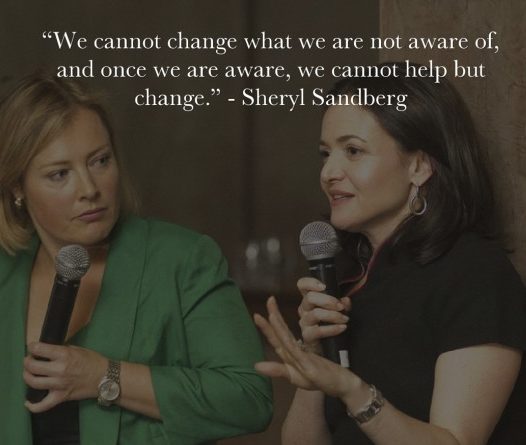Have you recently moved to a new level of leadership? Perhaps you’ve moved from the C-Suite to CEO, from CEO to board member, from director to VP, manager to director, or from colleague to first-time supervisor.
Or maybe you would dearly love to move to the next level of leadership and but are frustrated with your lack of progress.
Most of my readers want to know how to either become a better leader, or how to move to the next level of leadership.
This might surprise you, but whether you are a new leader or a seasoned one, there are essential habits that you can form or strengthen now that will give you and your team greater impact, influence, and rewards at every stage of your career.
These leadership skills are no secret – and if you cultivate even one of them you will see immediate results.
Yet, few leaders and emerging leaders take the time to invest in their personal and professional development. I know, I was one of them myself.
In my career from college graduate, to manager, director, entrepreneur, executive, CEO, and public company board member, I’ve learned that the sooner you embrace these habits, the quicker you will achieve clarity, confidence, and the resources you need to navigate the inevitable setbacks.
I’m sharing these ideas because I wish I had embraced them even sooner!
These habits are simple to implement, yet require intention and a willingness to learn and grow. Try at least one of these this week because you will see immediate benefits.
1. Define what leadership means to you.
This sounds simple, but most leaders are so busy getting things done that they don’t stop to consider what being a leader means beyond that. I used to think leadership was about strategies and techniques to get things done. It certainly is, in part, but I’ve found that it’s more about “how to be,” not “how to do it.”
The longer I strive to grow as a leader and work with great leaders, the more I have grown to understand the difference between doing and being. Leaders are always on – people notice what you say and do. People notice how a leader treats others, how they act and react, especially with those people who disagree with them, or challenge them. It implies a value on people and relationships before performance.
Your definition of what a good leader is will evolve, as mine has. I highly recommend that you find leaders you admire and want to emulate – in your current organization or network and those from the public square whom you may not know personally. For example, I admire the CEOs and Chairmen on whose boards I serve and I also admire leaders I’ve never met, like Dr. Amy Cuddy of Harvard University.
2. Know yourself and your strengths.
This will help you discover your leadership style. I write about the benefits of this often. There are a variety of self-assessments; I’ve found Strengthsfinder excellent as a quick tool to gain clarity on my strengths. Recently, I’ve come to appreciate Gretchen Rubin’s assessment on Tendencies. Rubin identifies four habits: Upholder, Obliger, Questioner, and Rebel. These and other assessments have been developed after extensive studies and practice.
Why wouldn’t you want to know yourself better? Investing in self-discovery also has the surprising benefit of helping you understand and be more empathetic with others.
Imagine how helpful it would be to know that you are naturally a Questioner and your most challenging direct report is a Rebel. It changes your perception: you and they are just acting within tendencies and it’s not personal.
As Sheryl Sandberg, COO of Facebook and author of Lean In says, “We cannot change what we are not aware of, and once we are aware, we cannot help but change.”

When you take the initiative and do an assessment, you will probably find that some traits you undervalued or considered idiosyncratic are actually strengths that you can more intentionally utilize.
How can you lead and appreciate others if you don’t fully know and appreciate yourself?
Author Jim Rohn observes: “Formal education will make you a living; self-education will make you a fortune.” – Jim Rohn
3. Make relationship building a priority.
In work and life, people are the most valuable, important, and appreciable asset. Make the effort to get to know your team. Many, if not most, of the relationships you forge in your work will last far beyond the time you spend in a particular position or company. Respect people and cultivate a good working relationships, even if you disagree with their actions, reactions, and decisions. Relationships are constantly evolving and when you have this attitude, it creates space for you and others to keep growing and changing.
As legendary leadership expert John Maxwell says, “When people feel liked, cared for, included, valued, and trusted, they begin to work together with their leader and each other. And that can change the entire working environment. The old saying is really true: people go along with leaders they get along with.”
Here is a revolutionary idea: Make it a goal to enrich your relationships with colleagues, senior leaders, and the team who reports to you. This manifests itself in several ways, including ever improving communications skills like listening, and asking questions to learn about them and their work.
By its definition, leadership requires you to go above and beyond. It doesn’t matter if you naturally get along with, like, or respect people on your team – you and they will benefit by reflecting on these ideas.
I’ve found that when I make it my goal to improve or enrich the relationship with the person or people on my team who are the most challenging, the process and outcomes are better.
4. Build stronger communications skills.
Communications is leadership. It is one of the three most important investments you will ever make and the benefits permeate your work and life. Of course, if you are cultivating habits 1 – 3 above, your communications will dramatically improve!
There are many tools readily available to improve your communications; I’ve outlined several in my (free) ebook, 7 Secrets To Highly Effective Communications.
As you grow in each new stage of leadership, your communications skills will also need to get stronger – much of leadership is communication – from listening, to facilitating, questioning, affirming, collaborating, inviting opposite points of view, directing, and giving feedback.
I’ve observed that there is an element of inspiring people to do their best and be their best in leadership. That when your communications include listening, appreciation, and are clear and consistent, people trust you and will work with you to achieve nearly any objective.
5. Expect that you and your team will make mistakes.
If you aren’t making any mistakes, you’re being too careful; and possibly not encouraging your team to take risks that will lead to extraordinary results. Encourage risk-taking; and when mistakes inevitably happen, learn from them, talk about them, grow from them.
I don’t know of a single successful leader who didn’t have major setbacks and mistakes. Some are highly visible and legendary, like Steve Jobs’ dismissal from Apple. Most are smaller; missing a deadline, selecting the wrong vendor, or hiring the wrong person.
Live and learn. Every good leader I know acknowledges mistakes openly, develops and communicates a plan to recover from the mistake, and is able to articulate lessons learned. No one expects you to be perfect, but they do expect that you as a leader will gain clarity and put a plan in place.
Becoming an exceptional leader doesn’t happen by accident. Your skills, expertise, acumen, past achievements, attitude, and even reputation have brought you to your current level.
Cultivate these five essential leadership skills and habits of leadership and you will continue to grow. People will want to follow you and become exceptional leaders themselves.






